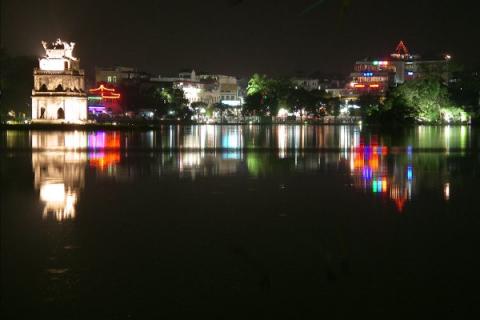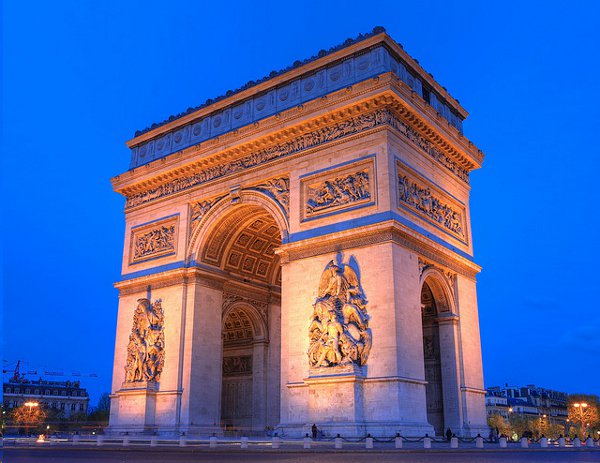Have Passport, Will Travel: Notes From a Globetrotter

From New America Media:
Two passports -- one new, the other old -- arrived in the mail the other day. The new, with its tough, blue covers and pristine, rigid pages that still resist my prying fingers is a stark contrast to the ink-stained, mud-smeared epic next to it, now punctured by the passport agency and rendered obsolete by the State Department.
In the old passport, I am a young man looking out to customs officers everywhere with a kind of trusting optimism. The skin that glows, the red lips, the dark, wavy hair that draped over my brows all convey something of innocence; a young man on a quest.
In the new passport, the photo shows someone else entirely; a weathered man in middle age with a sad smile and fine wrinkles around his eyes, and worse, a receding hairline. I look at this photo, myself in the present, and wonder: where did the time go?
Every man is vain, and I, of course, am no exception. In my late 20s, I was often mistaken by college students as their classmates and not their guest lecturer. And was it only a few years ago that a new intern at my news service mistook me for a fellow intern and not her editor? Then -- who knows when exactly, and which sun-drenched country was I traveling through -- the wrinkles came and the hair fell and fell.
Still, aging or not, I continue to go abroad. I do not know where the impulse to travel comes from but I have always had it, bad, ever since I was four or five. A Vietnamese child living in the Mekong Delta, I remember listening to my French educated father's stories of snow. Snow on the gilded bridges across the Seine and in the well groomed parks of Paris, snow across his bunker's window when he was a military exchange cadet in Denver, Colorado and snow on barren trees and moss strewn rock gardens and temple roof tops of fabled Kyoto.
I remember standing tiptoe afterward on the top of a chair next to the opened fridge with my hands in the freezer compartment scraping and scraping at the frost until my fingers were numbed. Even then, with eyes closed and a modest snowball in my palm, I had begun to travel. Or perhaps I was trying to commune with my worldly father.
Then the Vietnam War ended and my family and I crossed the Pacific Ocean on a C-130 cargo plane filled with many crying refugees. I was 11 but I, strangely enough, did not cry. I had never been out of the country before, never crossed the ocean. If I was witnessing the end of an important chapter in Vietnam's history, I could not grasp the significance of the moment. I was mesmerized instead by my own transparent reflection on the plane window, my face super-imposing itself on the bright and extraordinarily beautiful horizon, lips slightly parted where the sky kisses sea.

Bruce Chatwin, that great traveler and writer, once remarked that some crying babies could only be calmed down if they were carried and moved about, preferably in a car, because restlessness is a human impulse, something embedded in the gene. One becomes alive in movement, his every cell tingles with possibilities. Away from home and hearth, ingesting in a new landscape, the traveler's concepts of his own identity, of borders, of nationhood, are all up for dispute.
To travel, to really lose oneself in a new setting, is, after all, to subvert. In that C-130 full of refugees, I was moving not only across the ocean but also from one set of psyche to another. Yesterday my inheritance was simple -- the sacred rice fields and rivers, what once owned me, defining who I was. Today, Paris and Hanoi and New York are no longer fantasies but a matter of scheduling. My imagination, once bound by a singular sense of geography, expanded its reference points across the border toward a cosmopolitan possibility.
But some of us travel for a deeper reason, the deepest perhaps. A traveler is, ultimately, a pilgrim on a quest. The outer space explored is the metaphor for the inner life expressed and transformed. Every trip thus becomes a story, and every new passport with its pristine pages is, essentially, a novel, waiting to be written. The traveler emerges a bit wiser from the experience, with a story or two to tell if and when he or she comes home...
In search of meanings and solace, I flipped through the old passport and the entry and exit stamps from various countries fluttered out and hung in the ether like musical notes from some nostalgic rhapsody: France, I'm in my lover's arms in an attic in winter, looking out to the Seine where snow is falling on a gilded bridge; Vietnam, I'm sailing down the river toward the perfumed pagoda amidst limestone mountains while white cranes fly overhead; Mexico, my best friend and I are eating conch and drinking margarita on a white sandy beach, the Atlantic ocean lapping at our bare feet; Nepal, I'm sleeping near the world's rooftop with the roundest and brightest moon I've ever seen hanging out my window turning the top of Mt. Everest into a glorious, blue dome.
A parade of beatific moments came flooding back and gave me courage to look at the photo in the new passport once again, where I now see that it's not a sad smile. It's a knowing smile. After all, mine is what it should be: a traveler's face.
Author Bio:
Andrew Lam is an editor with New America Media and author of Perfume Dreams: Reflections on the Vietnamese Diaspora, which won and Pen American Award in 2006, and East Eats West: Writing in Two Hemispheres. His next book a short story collection, Birds of Paradise Lost, will be published next year. The above passage was excerpted from his book, Perfume Dreams.
Photos: David et Magalie (Wikipedia Commons); Anirudh Koul (Flickr, Creative Commons).






























































































































































































































































































































